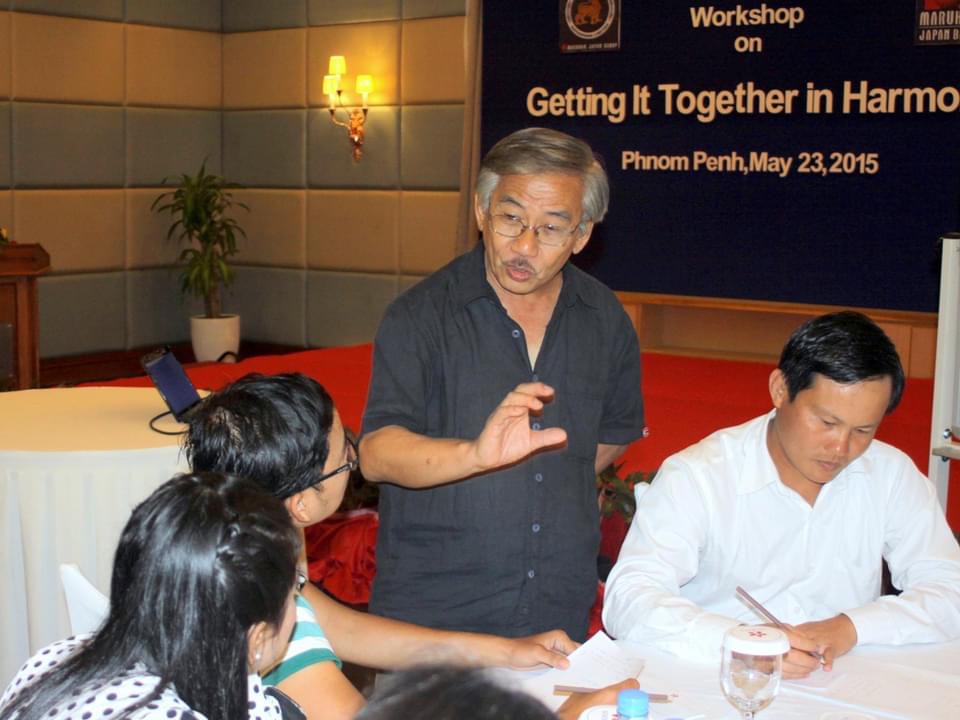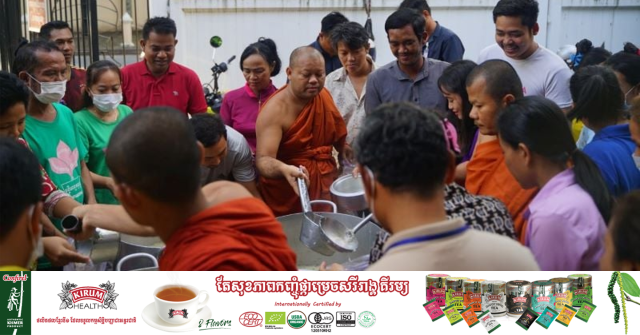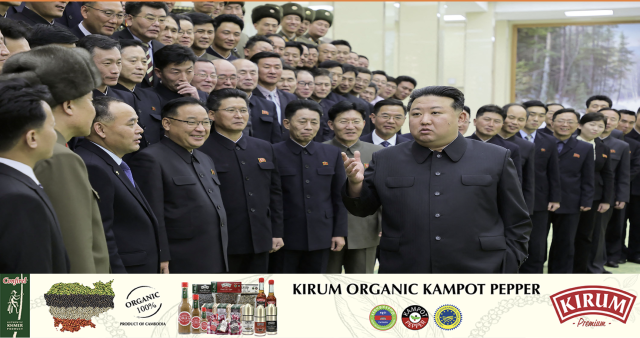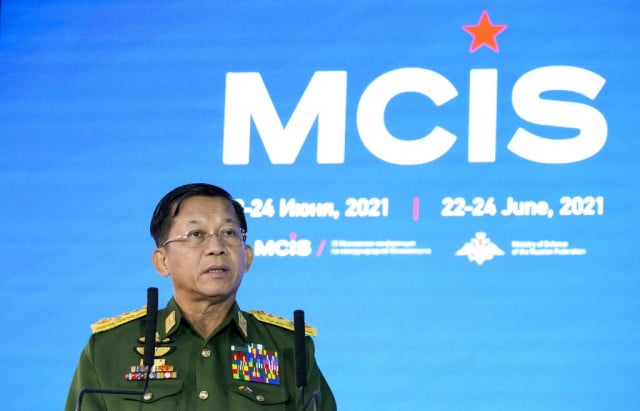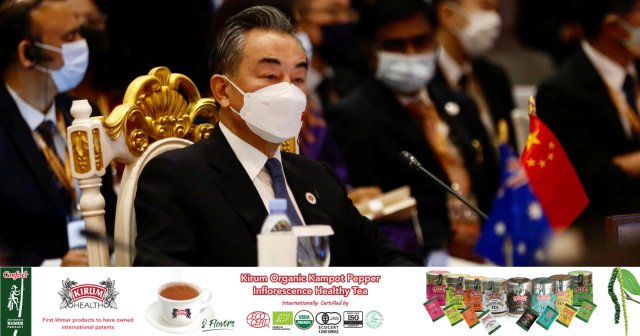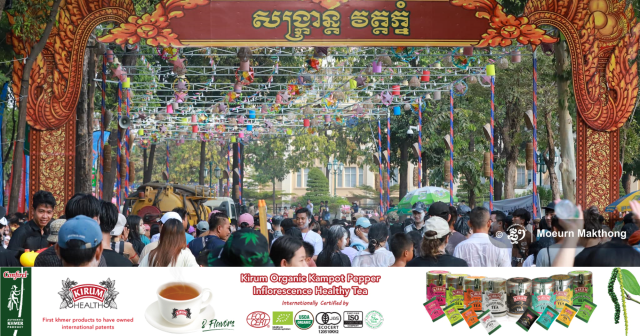A Man Who Changes Cambodian Youths’ Mindsets
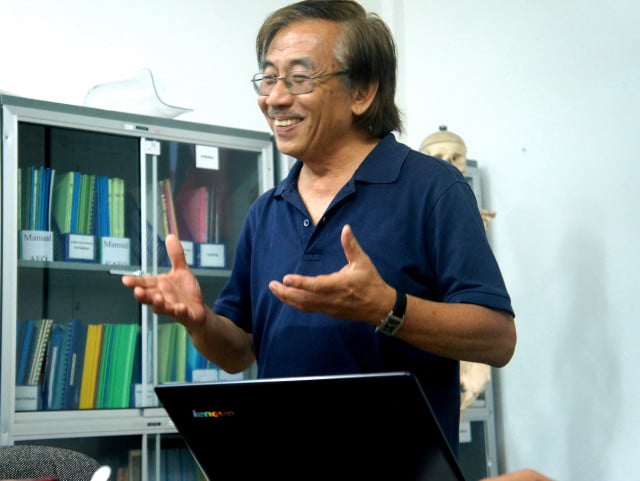
- By Ky Soklim
- September 3, 2021 3:22 PM
The keys to successful training
Life’s journey can be tricky with many unexpected and unknown challenges. Ky Soklim sat down with Christopher Lee, founder of consultancy and training service HEDC International and the author OPERACY to discuss the origin, meaning and the objective of the book.
Ky Soklim: Why did you decide to write the OPERACY Book? What does OPERACY really mean?
Christopher Lee: I conceived, developed and trained people on the OPERACY course, the Key to Personal Empowerment, Success and Leadership in 1992, some 20 years before I published the OPERACY book. So, a more relevant question would be,“Why did I create the OPERACY course?”
There are four main reasons. First, OPERACY was born out of my personal frustration. In 1982, I left a secure and good government position in Australia and became a freelance consultant, working in developing rural communities, government and non-governmental organizations in Thailand, Indonesia, Laos, the Philippines and Cambodia.
I worked for many large projects funded by AusAID (now DFAT), USAID, World Bank, ADB, and UN agencies including UNDP, UNICEF and the WFP.
Most projects focused their effort and provided a significant portion of and budget on what they called “capacity building” which is a fancy word for “training”. So, we contracted many external trainers, many of whom were highly competent locals and expats.
As time went on, I noticed more and more that the results of our training did not match the effort and money spent. Everyone loved to be trained but after the training was completed, most people did not do what they learned.
My estimate is that only less than 4% of the people who received the training practiced what they learned and became more successful, whether it is in growing fish at the rice fields, promoting better technology or hygiene to the community, or managing their own staff and organizations.
Most of the consultants and trainers that I have spoken to experienced the same results. Like most consultants, I wrote about and showed photos of our success in my final reports. I did not report on our failure in making the majority of people practice what they had learned.
After a decade of blaming the community and their change agents of being lazy, uncommitted and only interested in the per diem we provided, I realized that the real problem was mine all along.
Like most people, I naively assumed that if people know what to do then they will automatically and logically do what they know. This has not worked with religions so why it should work in development?
This is the turning point of my understanding: Knowing what to do does not automatically make people do what they know. And, why people fail or refuse to do what they know? The big answer is: Mindset.
This is the first reason. I created OPERACY to help people do what they know by changing their negative, passive, and unproductive mindset to a more empowering positive, proactive and productive mindset.
The second reason is to help people understand that success is a choice. Working with many people such as the “disempowered” people, the poor, the oppressed and the abused, as well as the “powerful” people including affluent parents, teachers, governors, directors and monks, I found that many felt hopeless in dealing with their life.
One of the most common excuses I kept hearing is “I have no choice”. So, I wanted to conduct training to empower them by making them aware that “success is a choice” and “happiness is a choice”.
Third, I found that, generally we had failed to treat our earth seriously. Many projects treated the earth’s need to survive and prosper as an appendix and were satisfied with a sentence or two indicating that their activities will not harm the environment.
Fourth and lastly, I am trying to help people to have the “right perception” about life, love and leadership. It was not by accident that when Lord Buddha gave us the Eight-Fold Paths, the Right Perception was on the top of the list, because the wrong perception or ignorance is the major cause of human suffering, be it dealing with COVID-19, terrorism, earth crisis, or failure and despair generally.
I notice that people look but they don’t see, they hear but they don’t listen. I define OPERACY as “The skill of individual person to grow, to self-regulate and to nurture others to be successful. The objectives of OPERACY are to empower people to become successful and happy and to create effective leaders. OPERACY defines success as “achieving one’s goal, without diminishing one’s future or other people’s and the earth’s capacity to grow and prosper”.
Anything less, we cannot truly consider success because it would not last. In short, OPERACY is the capacity to “operate” our mind effectively. The OPERACY book was written much later at the request of many training participants as well as a resource material for those who wanted to conduct OPERACY training themselves.
Ky Soklim: To knowledge, you have taught OPERACY in many countries. Which country do you think these courses get the big result or impact? And can you tell me why?
Christopher Lee: I have never yet found people from a country that do not like OPERACY. We know this because we asked participants to evaluate what they learnt and gained after each course. This includes Malaysia and Singapore, and many of our participants are CEOs, directors and general managers of large corporations and banks, as well as senior members and consultants of international NGOs and projects.
We have successfully provided OPERACY to people with different education background, from those who are illiterate to university deans and professors and doctors. OPERACY is equally appreciated and demanded by communities with diverse religious backgrounds including Buddhism, Christianity and Islam.
As far as a “big result” is concerned, I believe it is more to do with the level of hardship and despair than on national characteristics. I see a big impact in the aftermath of the Pol Pot regime in Cambodia, after the earthquake/tsunami in Aceh in Indonesia, in conflict areas of Southern Thailand and period after terrorists devastated Marawi in the Philippines. One of the reasons that I believe is because OPERACY bring hope and direction back into their lives.
Ky Soklim: In the case of Cambodia, do you think that this sort of training is crucial? If so, why?
Christopher Lee: When projects and foreign aid started to pour into Cambodia after the collapse of the Khmer Rouge (Pol Pot regime), training was focused mainly on building capability or technical skills. Essentials such as technical skills were incomplete.
Cambodia also needs to recover from her emotional and spiritual trauma. When I started OPERACY in 1997 in Cambodia, almost all training institutions were focused on providing technical skill training. In fact, some of my former UNDP colleagues tried to discourage me and told me that I was wasting my time. Nobody needs it and nobody wants it.
They were right. OPERACY was unknown at that time. The first time I conducted OPERACY in Cambodia was in 1999 and only one person attended. He was a finance officer in Siem Reap Provincial Government. His name is Mr. Chan Sophal and you probably know him as H.E. Chan Sophal, the former governor of Battambang province. Leadership is what we can develop together with the technical, social, emotional, ecological and spiritual needs of Cambodia.
One of Khim Sok Heng’s important contribution to my work in Cambodia was in bringing into my attention a Cambodian proverb: “To plant trees, take care of the roots; to develop people, nurture their characters”. I adopted this concept into all my training courses. The Greek Philosopher Heraclitus said that “Character is destiny”. I believe that character is everything! Not only it determines the destiny of the individuals, but ultimately it shapes the destiny of Cambodia. Therefore, above all else, OPERACY was designed and taught to strengthen and nurture characters.
Ky Soklim: Do Cambodians, especially youths, like this training?
Christopher Lee: The answer is yes, definitely. But, how do we know? First, at the end of each of our training sessions, whether public training or those provided for ministries, NGOs or private sectors, we ask participants to evaluate their learning experience.
Subsequently, their evaluations are included in the training report. For more than 20 years, we found participants overwhelmingly indicated love or happiness with the training. On rare occasion, and to be expected, one or two were unsatisfied.
Secondly, another important indicator was their eagerness to take photographs with myself and other OPERACY trainers. Thirdly, HEDC has a money-back guarantee policy and will return without question 100% of the tuition fee if participants are not satisfied or disliked the training.
Thus far, for over 20 years, no one has asked for their money back. Fourthly, we continue to have close relationship with our participants. Often, they asked for guidance and advice. Lastly, we received many commendations 10 or 20 years after they attended the training.
Ky Soklim: For almost two and a half decades, you have provided many OPERACY trainings courses in Cambodia. How many students have you taught?
Christopher Lee: Over a period of 24 years, from 1997 to 2021, I estimated that we trained over 400,000 people in Cambodia. These is only a rough estimate. I stopped counting when the number reached 250,000.
Another factor to bear in mind is that these were not done by myself alone, but by many of HEDC International team members. During my work on the rehabilitation of earthquake/tsunami in Aceh, Indonesia from 2005 to 2007, most of OPERACY training in Cambodia was conducted by Mr. Khim Sok Heng. He was very active, especially in providing training for staff of microfinance institutions.
Many OPERACY training sessions were attended by many hundreds to a thousand participants such as those we conducted for Sihanouk Raja Buddhist University, the Police Academy of Cambodia, CPP (Cambodia’s People Party), National Association of Capital and Provincial Councils, National League of District and Commune Councils, Preah Kosamak Hospital, Preah Ket Mealea Hospital, Khmer-Russian Friendship Hospital and Centre for Hope Sihanouk Hospitals.
Ky Soklim: After attending OPERACY trainings, what is the percentage of trainees who become “successful”?
Christopher Lee: Without OPERACY, we estimated the success of training as measured by improvement of income, attitude and mindset was below 4%. Based on participant’s feedback, reports and observation, the success rate after OPERACY is estimated to be from 40% to 60%.
This is just one clear example from OPERACY which was provided to victims of the earthquake/tsunami 2004 in Aceh, Indonesia. One of the victims of the earthquake tsunami lost all his family, house and livelihood. He attended OPERACY in 2006. Motivated by what he learnt, he built from scraps a small shop with no money and no stock. He called his little shop the OPERACY shop.
Five years later he has a minimart, a restaurant, a barber shop, a house, a family and a car. This is a true story albeit anecdotal. We have not done a structured study on the effectiveness of OPERACY. A partial study with Grade 11 students from one school in Phnom Penh indicates significant improvement of the students, but the lack of support from teachers and parents made it difficult to draw full unbiased conclusion.
We plan to do a full study of the effectiveness of OPERACY in the future when we are successful in obtaining a research grant. If any organization is interested in supporting our study, we would like to hear from them.
Ky Soklim: Why are others unsuccessful?
Christopher Lee: These are the reason why others are not successful. Every participant is different, they have different childhood background and life challenges.
They may not fully understand the lesson through no fault of their own. They did not receive adequate support and coaching after the training because we have many participants and we do not know every participant’s shortcoming. We offer free mentoring but they must approach us for help. People who were successful like Khim Sok Heng were those who continually asking questions.
They may be prevented from practicing what they learned by their own parents, teachers and bosses. For this reason, we recommend parents and managers join the training with their children and staff. When people attended OPERACY once, they are entitled to attend OPERACY again as many times as needed without payment.
Those who were successful were usually those who attended more than once. Some participants attended OPERACY seven to eight times. I believe, everyone wants to be successful and given the right inspiration and proper mentoring, they will be successful.
Ky Soklim: For you, do you believe that success could come from luck or destiny?
Christopher Lee: Yes, I believe. If you win a lottery, you are definitely a lucky person. In OPERACY, we help people to have the “Right Perception” in regards to destiny. Destiny has two components, passive and active. The passive parts came from the way we were born, our physical, intellectual, emotional and spiritual environment, especially during our childhood. This is largely out of our control.
The active part of our destiny comes from our thought and action. Lord Buddha once said “You are what you think”. As human we are gifted with a powerful brain for a reason. If we do not actively manage our destiny, then destiny will manage us. Karma means action.
Ky Soklim: To you, is OPERACY a pure theory like other theories or a theory based on real life?
Christopher Lee: I am a pragmatist not an analyst, so I do not like theory. If I do research on the effectiveness of OPERACY, I do for other people. For me, I observed and I believe. As Lord Buddha said, “We have to live according to the truth we see face to face”. OPERACY is a proven concept of success.
The most successful and sustainable observable system we know is our own universe. Central to OPERACY is the Law of Universal Governance. EVERYTHING in the universe, from atoms to galaxies, from ocean to forest and from bacteria to human is governed by this law.
The universe is the most successful and sustainable living system we know. Within the Law of Universal Governance, there are 5 principles: 1. Change and Transformation, 2. Differentiation or Diversity, 3. Unity or Communion, 4. Self-Regulation and 5. Expansion and Returning. I have searched and observed for more than 30 years for one single exception to this law, but I did not find any.
OPERACY differs from other success and leadership trainings including parenting, community development or enterprise development in that it is based on natural law and not social law. Singapore transformed itself within 10 years from 1965 to 1975 because it conformed to the five principles of the law.
If Singapore can do it, Cambodia can do it also because it is not a theory. It’s the truth; it’s the law. As quoting from one of the many participants, a consultant for the ASEAN Secretariat wrote, "You have successfully simplified the complexity of life".






